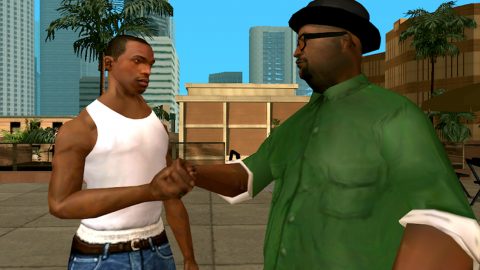NME Music News, Reviews, Videos, Galleries, Tickets and Blogs | NME.COM

Happy birthday Seven (or Se7en, as it is sometimes known) – 25 years old this month and still one of the bleakest and best detective movies ever made. Influencing every cop show and crime movie since with its rusty aesthetic and body horror vibes, David Fincher’s 1995 Gen-X noir took a scalpel blade to the detective genre and opened up wounds that keep on bleeding originality today. Still shocking despite all the years and all the many, many imitators, Seven stands as a reminder of just how dark Hollywood can get when it wants to. And it all came so close to never happening…
Back in the early ’90s, Fincher was ready to give up making movies. A visual effects artist turned ad man, he helped revolutionise MTV by directing music videos for the likes of George Michael (‘Freedom! 90’), Madonna (‘Vogue’) and Aerosmith (‘Janie’s Got A Gun’). Hollywood was impressed enough by his CV to let him direct Alien 3, and then freaked out enough by what he gave them to butcher it in the editing room, making him rethink his whole career. Or, as he put it at the time, “I’d rather die of colon cancer than make another movie”.
When the script for Seven came along, Fincher changed his mind. The story of two detectives chasing a serial killer who frames his murders around the seven deadly sins, it was an old-fashioned crime movie about something much bigger, and nastier. A nihilistic nightmare for the end of the century, Seven was all the anger, alienation and disillusionment of the ’90s dressed in the clothes of a good cop thriller – it was the film that Silence Of The Lambs was too scared to be. Helping Brad Pitt sidestep into ‘proper’ acting roles, and letting Morgan Freeman become the sage old mentor he’s played ever since, Seven shocked audiences at the time with its violence, its mood, and its gloriously unhappy ending.

Even now, when everyone (hopefully) knows exactly what was in “that” box, it’s impossible not to admire the ugly beauty of the film’s plot. Silence Of The Lambs ends with a classic bogeyman boo (Hannibal Lecter winking at the camera as he “has an old friend for dinner”) but Fincher’s riff on the same genre didn’t leave room for anything half as fun. By the time Seven ends, the killer’s plan has worked perfectly, Pitt’s character is stripped of his hope and optimism and Freeman’s jaded, damaged detective is left to drift off into purgatory on his own. Even if Kevin Spacey’s surprise third act appearance has err… aged less well, it’s still a gut-punch of a finale no matter how many times you’ve seen it. Closely tied to the grim cultural landscape of the mid ’90s, there hasn’t been a more existentially bleak end to any mainstream Hollywood film since. Not that others haven’t tried.
Ever since Seven, it’s been fashionable to call gritty movies ‘dark’. Anything with a murky moral compass now gets wrung through a PR machine that paints it as some new shade of grown-up nastiness no one has seen before. Last year’s Joker, this year’s The Devil All The Time and next year’s The Batman all have degrees of darkness, but all seem positively sunny in comparison to Seven – a film that aims to prove nothing matters and everything sucks.

As soon as Seven came out in 1995, the copycats followed. First came a wave of imitators – movies about jaded detectives tracking down creepy criminals with elaborate MOs (some that even had Morgan Freeman in them). Movies like Kiss The Girls, Along Came A Spider, The Bone Collector and The Pledge.
Then came the horrors. Seven broke ground by turning its murders into sadistic games (use the phone superglued to one hand to call the police, or OD on the pills glued to the other hand because you can’t stand living with a mutilated face?), which gave plenty of nasty ideas to filmmakers like Eli Roth and James Wan. Gamify the murders in Seven and dumb down the plot and you basically have Saw.

The idea of mixing horror with crime seemed to stick too – forcing every detective drama since to throw in gratuitous gore, shock endings and plenty of mood lighting. The look and texture of Seven was achieved by a chemical process called bleach bypass (leaving elements of silver in the film stock to increase the contrast and graininess), and Fincher combined this with scuzzy, torch-lit sets that looked like they could have come out of a real crime scene – something seen again in everything from Memento to Nightcrawler.
Music-wise, the movie’s impact is obvious: Nine Inch Nails started turning up on more mainstream soundtracks (Final Destination, Lara Croft: Tomb Raider, Resident Evil). Other film’s opening titles used scratchy, subliminal montages (Red Dragon, Taking Lives, The Bone Collector). Even the old Lethal Weapon cliché of taking “one last job” before retirement didn’t feel as tired anymore.
Television, then a shadow of the megabucks small screen world we live in now, felt Fincher’s influence too. Autopsies had been seen on film before, but Fincher was the first to really delve into the procedural science of forensic crime scene investigation. Enter CSI (and all the many, many imitators that still run every day on all those channels you never watch). Enter also all the other TV shows that borrowed everything from Fincher, from his obsessive, existential cops (Luther, Wallander), elaborate serial killer plots (The Fall, The Tunnel), horror grain visuals (Hannibal, Supernatural) or all three (True Detective).

“I’m a huge fan of Seven,” actor Tom Payne recently told NME, talking about his new detective show Prodigal Son. “We based a lot of the lighting and aesthetic on that movie. It just feels like how a serial killer story should be told”.
So happy birthday to Seven as it turns 25 and still doesn’t look a day older. Happy birthday from the film’s many children in film, TV, video games, adverts and music videos. Don’t bother with the candles – use a flashlight. And don’t bother with a cake either, because what’s the point of anything?
The post Blood, bodies and the box: how ‘Seven’ changed film and TV forever appeared first on NME Music News, Reviews, Videos, Galleries, Tickets and Blogs | NME.COM.




